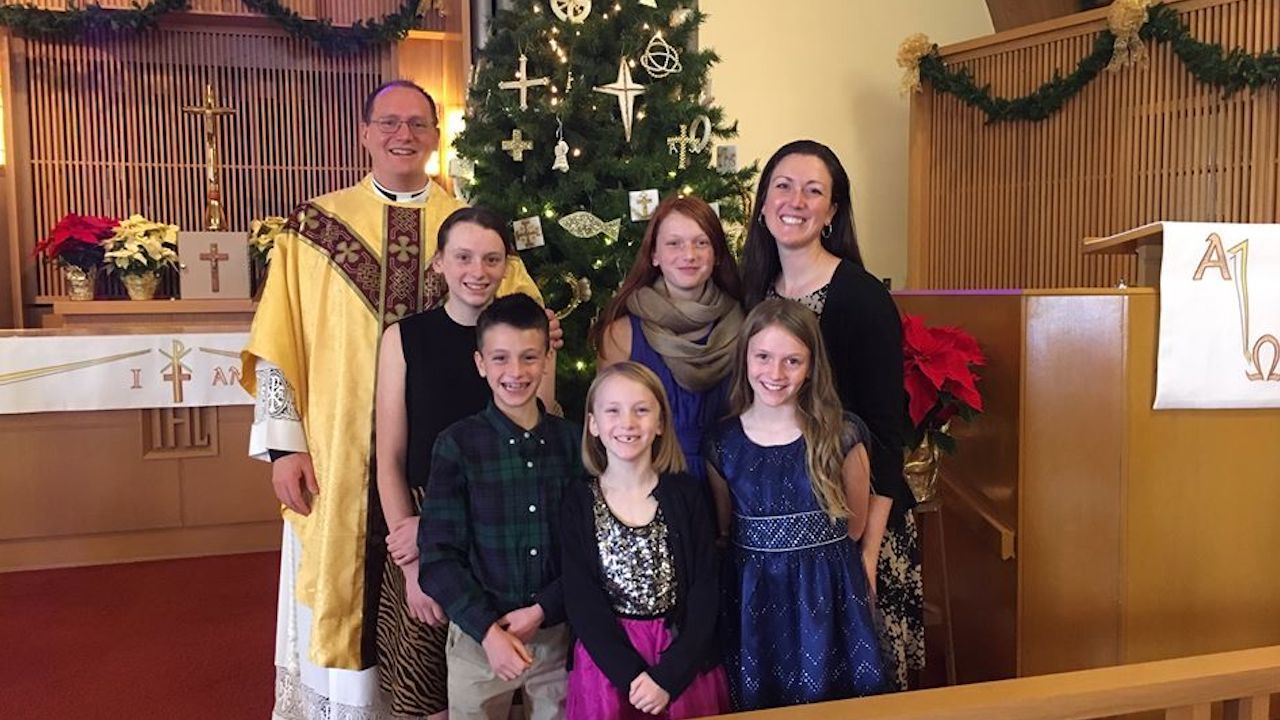The Boyle family
IS CLASSICAL
education just for school and for those who really like books? Can you be classical at home, even when life seems chaotic?
These real questions apply to real people. Our family is a busy family. Not only are there a lot of us, but both my husband and I work, our kids practice sports and music, and we’ve found great joy being active socially as well.
Sometimes, though, it’s too much. Things can get lost in the shuffle. There’s little time for homework; the neighbor-boy is disappointed with no one to play; and we can’t read together as often as we’d like. So, what do you do?
Well, I’ll tell you what we do, at least. Let me start by saying that we’re nowhere near perfect! Sometimes we’re just too exhausted or busy to cook a proper meal. Sometimes homework doesn’t get done. And sometimes a TV show or movie is needed. But what we’ve found is that those ‘sometimes’ should be exceptions, rather than rules.
Where to start? Well, let’s work backwards:
- Bedtime. We try hard to have a consistent bedtime. We shoot for lights out by 8:30pm (later than we’d like, especially for our younger children, but realistic). This means showers, tooth-brushing, and our evening prayers need to start by 8pm.
- Before the bedtime ritual (an hour or two, typically), and depending on the day’s schedule, we sit as a family and read. We just finished The Mitchells: Five for Victory
by Hilda Van Stockum. We can’t read every day, but it’s a majority. We’ll also finish any homework. If it’s nice, they’ll play outside.
- We typically eat dinner between 5-6pm (depending on basketball practice, Sisters of Sophia at EDI, or evening meetings). One rule is that we always eat together. There are exceptions, but very few. At dinner, we talk. First, we thank God for the food. Then, between bites, we each say our “goods” and “bads” for the day, which can take our conversation in many directions. Whether we like the food or not, we all eat it anyway. Then, it’s the older girls’ job to do the dishes.
- Between the end of school and dinner is basketball practice for some, piano lessons for others, and general play for the rest. We empty lunches, put away backpacks, change clothes, and ask ‘Alexa’ to play whatever song we heard someone talking about at school. It’s also time to tell Dad how we did on our spelling tests…
- Before school is a rush! Dad makes sure everyone is awake by 6:45am. Then it’s a mad dash of changing, breakfast, packing lunches, and grabbing a snack. The point here is consistency: it’s important to wake up and go to sleep at the same time each day.
Okay, so what’s ‘classical’ about this?
First, you’ll notice that, as a rule, there’s no time scheduled for TV. Play time is first outside, second with board games or whatever they find inside (legos, velcro darts, etc.). Admittedly, with five children there’s not much need for directed play. We don’t have phones or iPads for the kids either, so that’s not even a temptation. As new studies are consistently showing, screen time for children has negative impacts on cognitive and social development. Kids need to run and move and figure out how things work and push the boundaries. We keep the boundaries firm, of course; and yes, they get in trouble. But it’s good for them to discover. Let them be bored: they’ll end up exploring, and learning to teach themselves — that’s classical.
Secondly, eating together is classical. You don’t need to recite Latin at the table (though, sometimes that actually does happen…thanks, Mr. Wagner…). Eating together is just a human thing to do. It’s a place for conversation and joy and honesty. As a rule, it’s more classical to make your food than not, and that can be done together, too, but sharing meals is a key way for keeping families strong.
Third, we read. Individual reading is good. Reading aloud as a family is better. It sounds antiquated, but actually it’s immensely rewarding. It gives a common story with all the joys and sorrows. Books allow imaginations to work, while TV shows do that for us, leaving us passive. Books invite you to provide color and shape and accent—they even let you in on what the character is thinking! And families can talk together about their impressions, anticipations, questions of the story they’re reading.
Finally, there’s a structure. Even with the busy-ness of life, it’s a structure we work hard to keep. Like I said earlier, we’re not perfect, not even close. But this discipline of ordering our daily lives intentionally, particularly with a focus on what’s good for our family, is what classical education is all about. It cares about the formation of real people, who exist in real families.
So, let me encourage all of you who also have busy families. You can do this! Whether it’s limiting screen time, or arranging your schedules to eat together, or finding a family book, there are little things you can do to make your family more classical, which simply means, more family. May the Lord bless you as you bring your family to focus on the true, the good, and the beautiful.
*This reflection originally appeared in a newsletter from Christ the Savior Academy, a classical school in Wichita, KS where Mrs. Boyle teaches.










